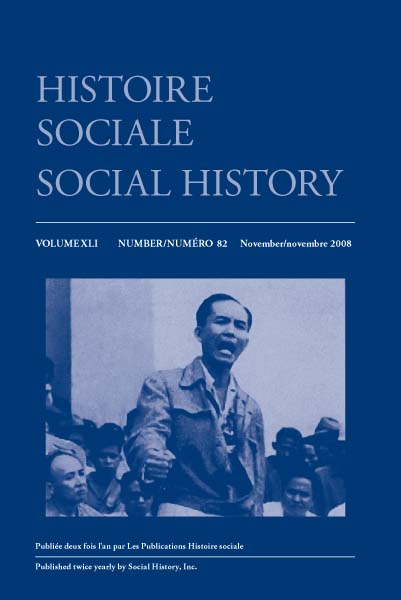Transcending Language and Ethnicity: Oblates of Mary Immaculate and the Canonical Erection of the Diocese of Calgary, 1912–1916
DOI :
https://doi.org/10.1353/his.0.0030Résumé
Historians have generally presented conflict between the Oblates of Mary Immaculate and Bishop John Thomas McNally of Calgary as a chapter in a national narrative of rivalry between “French” and “Irish” Catholics. However, references to ethno-linguistic rivalry are conspicuously absent from contemporary reports by the Oblate personnel of southern Alberta. These reports indicate that Oblates attributed their conflict with McNally to administrative tensions between episcopal authority and the autonomy of religious orders. Having assembled a multi-ethnic and multilingual missionary corps in response to the rapid influx of Catholic immigrants over the previous three decades, Oblates believed that a secular bishop possessed neither the international connections nor the administrative experience required to assume jurisdiction over such a diverse faith community. They consequently resolved to retain their traditional autonomy and to oppose efforts to concentrate ecclesiastical authority in the office of bishop. Les historiens ont généralement présenté le conflit entre les Oblats de Marie Immaculée et Mgr John Thomas McNally, Évêque de Calgary, comme un chapitre de la narration nationale traitant de la rivalité entre catholiques « français » et « irlandais ». Des allusions à une rivalité ethnolinguistique sont cependant absentes des rapports rédigés à l’époque par le personnel oblat du sud de l’Alberta. Ces rapports indiquent que les Oblats attribuaient leur conflit avec McNally aux tensions administratives entre l’autorité épiscopale et l’autonomie des ordres religieux. Ayant assemblé un personnel multiethnique et multilingue en réponse à l’afflux d’immigrés catholiques durant les trois décennies précédentes, les Oblats se sont convaincus qu’un évêque séculier ne possédait ni les liens internationaux ni l’expérience administrative requis pour assumer la direction d’une communauté si largement diversifiée. Ils décidèrent ainsi de conserver leur autonomie traditionnelle et de résister à toute tentative de concentrer l’autorité ecclésiastique sur la fonction de l’évêque.Téléchargements
Numéro
Rubrique
Articles


